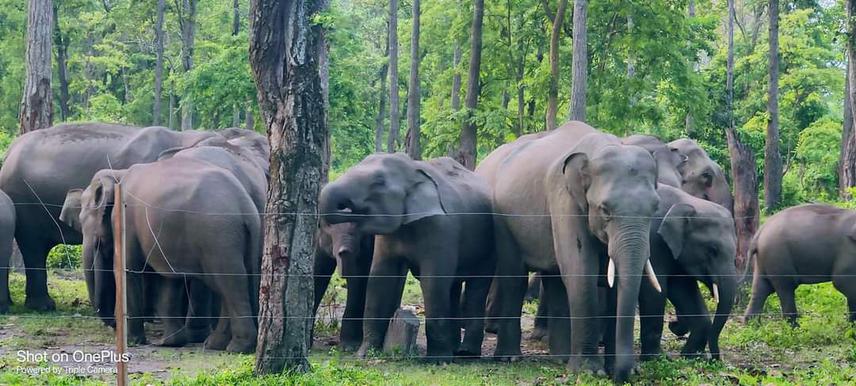Sayan Banerjee
Other projects
12 Sep 2023
Establishing Community-Based Conflict Mitigation Strategies and Socio-Ecological Research to Promote Elephant-Human Coexistence in Northeastern India
The aim of this project is to document human-elephant interactions in a non-protected, mixed-use, human-dominated landscape in the state of Assam, India. This will have important implications for the long-term conservation of Asian elephants in this landscape. My study thus proposes to assess:
1. General behavioural activities of elephants in a mixed-use, human-dominated landscape
2. Behavioural responses of elephants to human presence and activities
3. Patterns of livelihoods and lifestyles of the local human communities in the landscape
4. Spatial and temporal patterns of human-elephant conflict across the landscape
5. People’s perceptions, attitudes and behavioural actions towards elephants

This project intends to understand the human-elephant interactions by holistically examining elephant ecology and behaviour, patterns of livelihood and lifestyle of local communities, behavioural interactions between human and elephants during encounters and people’s perceptions and attitudes towards elephants. This project will be situated at the Dhansiri forest division of Udalguri district in the state of Assam, India. Dhanisiri forest division falls under easternmost buffer area of Manas Tiger Reserve and is a part of Ripu-Chirang Elephant Reserve. In this context, the study proposes to assess,
1. General behavioural activities of elephants in a mixed-use, human-dominated landscape
2. Behavioural responses of elephants to human presence and activities
3. Patterns of livelihoods and lifestyles of the local human communities in the landscape
4. Spatial and temporal patterns of human-elephant conflict across the landscape
5. People’s perceptions, attitudes and behavioural actions towards elephants
The present project will integrate research methods pertaining to animal behaviour and social sciences. Ethological observations will be carried out, using standardised qualitative and quantitative observational techniques, to document and understand the nature and extent of the behavioural interactions displayed by the study elephants with humans, various resources and conservation artefacts. Ethnographic studies will be conducted to understand the lived experiences of people in the landscape and will have two major components: observations and semi-structured interviews.
This project aims to obtain a holistic understanding of the dynamics of human-elephant encounters and interactions in a non-protected, mixed-use, human-dominated landscape. Given the magnitude of forest degradation and the associated expansion of human land use across the Indian subcontinent, more of such landscapes will be produced in the future, within which increasingly negative human-elephant interactions are likely to unfold, resulting in more severe loss of life and property of both humans and elephants. This project thus becomes an urgent necessity to provide us with an on-ground understanding of how new-found relations between humans and wild elephants are slowly being established in a conflict-ridden landscape and which can potentially allow us to develop strategies that would ensure more convivial relationships between humans and elephants in the future.